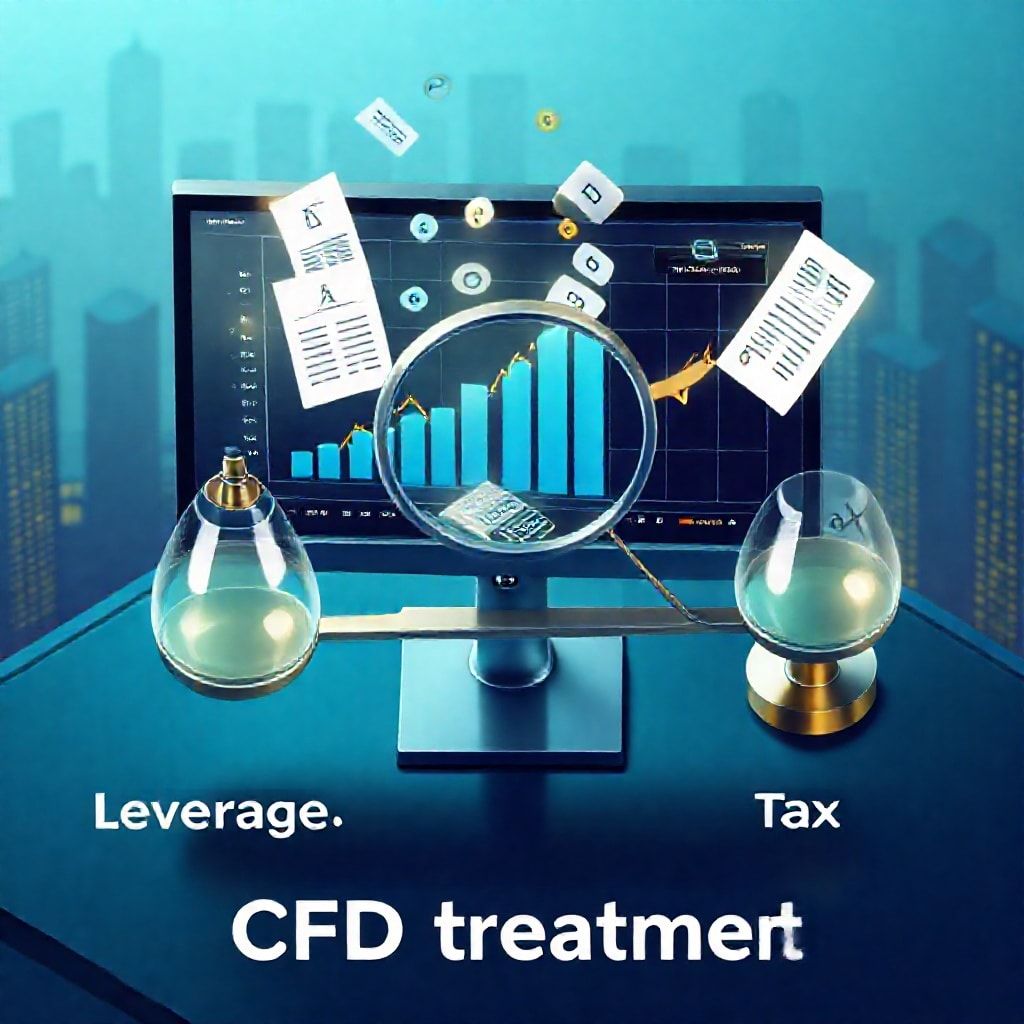What is the impact of leverage on tax treatment of CFD profits?
What is the impact of leverage on tax treatment of CFD profits?
Introduction
Leverage turns trading into a high-wire act: bigger swings, bigger questions about taxes. I’ve talked to traders who felt the thrill of 10x leverage on a forex CFD, then paused at the tax side—the realized profit, the financing costs, and where the bill lands. The upshot: leverage amplifies not just gains and losses, but the tax footprint too. This piece breaks down how leverage interacts with CFD profits across common asset classes, plus practical tips for risk management, tax record-keeping, and the evolving Web3/DeFi landscape.

Leverage, CFDs, and tax basics
Key Points
- Profit vs tax event: Tax is typically triggered by a realized P/L when a CFD position is closed or rolled. Leverage affects the size of that realized P/L, not every daily mark-to-market move.
- Financing costs matter: Overnight funding or financing charges tied to leveraged positions can influence net profit and may have distinct tax treatment depending on jurisdiction.
- Derivative treatment varies: CFDs are generally treated as derivatives, so tax outcomes lean on capital gains frameworks in many places, though ordinary income may apply in some jurisdictions or for certain trading activities.
What to watch
- Record-keeping matters: Track entry price, exit price, notional exposure, leverage level, and financing costs for each trade. That clarity makes tax reporting smoother and risk controls stronger.
- Local rules win: Tax treatment hinges on country, whether you’re an individual trader or a professional, and if CFDs are classified as financial instruments, spread betting, or derivatives. Get a local tax pro’s view for your setup.
Asset classes and tax nuances
Key Points
- Forex CFDs: Gains are usually capital gains or ordinary income, depending on activity level and local rules. High leverage can lead to outsized P/L, so the tax delta can be significant if a position is held across a reporting period.
- Stock/indices CFDs: Tax follows equity/derivative rules in many markets. Longs and shorts may incur different capital gains rates; leverage amplifies both sides of the equation.
- Crypto CFDs: Some jurisdictions treat crypto gains as capital gains, others treat them as ordinary income or as a separate crypto tax regime. CFDs on crypto inherit the same leverage dynamics but with extra crypto-specific reporting lines.
- Options/commodities: Derivative treatment tends to align with other futures/option products; financing costs and spread costs can affect deductions or basis calculations.
- Real-world example: A trader uses 5x leverage on a stock CFD, exits with a 12% gain, and deducts financing costs over a quarter. Taxable profit reflects not just the return, but the net financing impact. Clear records make the difference when filing.
Strategies and practical guidelines
Features and tips
- Leverage discipline: Align leverage with risk tolerance and portfolio size. A common approach is to cap effective exposure per trade at a small percentage of total capital, and to use tighter stop losses when leverage is high.
- Cost-aware trading: Compare financing rates across brokers, and consider holding periods that minimize carrying costs without compromising strategy goals.
- Tax-smart trading habits: Use tax lots or cost-basis methods that fit your jurisdiction. Regularly reconcile trade data with broker statements, and set aside a portion of profits for tax liabilities.
- Diversification across assets: Different asset classes respond to leverage differently. Balancing forex, indices, and commodities can smooth some risk, but leverage remains a double-edged sword.
Tech, DeFi, and the broader horizon
Web3 finance outlook
- DeFi challenges: Smart contract risk, oracle reliability, and evolving risk controls require diligent due diligence. Regulatory clarity is catching up, which impacts liquidity, insurance, and tax reporting in decentralized setups.
- DeFi advantages: Programmable money, on-chain analytics, and composite risk tools enable more transparent cost tracking and potential tax reporting automation, if integrated with compliant wallets and dashboards.
- Cross-asset synergy: As traders experiment with multiple streams—forex, stock CFDs, crypto, and tokenized indices—tools that unify position tracking, cost bases, and tax reports become more valuable.
Future trends: smart contracts and AI-driven trading
- Smart contract trading: Self-executing strategies reduce manual intervention and can standardize fee and financing cost recording, aiding tax accuracy and audit trails.
- AI-driven insights: Adaptive risk controls, dynamic leverage sizing, and real-time risk dashboards help traders stay within comfort zones while exploring new markets.
- Decentralized finance evolution: Ongoing tooling for secure custody, on-chain analytics, and standardized tax reporting will influence how leverage and CFDs fit into regulated portfolios.
Promotional lines and slogans
- Trade smarter, tax-smart, with leverage you can understand.
- Leverage boldly, report clearly, profit confidently.
- CFD profits, quantified, taxed with clarity—your edge in a fast-moving market.
Bottom line
Leverage magnifies both opportunity and complexity. A solid approach blends prudent risk controls, meticulous record-keeping, and awareness of how tax rules apply to your jurisdiction and asset mix. As Web3 and DeFi mature, expect better tooling for tracking leverage costs and tax outcomes, plus smarter safeguards against cascading losses. If you stay curious, you’ll navigate CFDs with more confidence and clarity, no matter which assets you trade.

